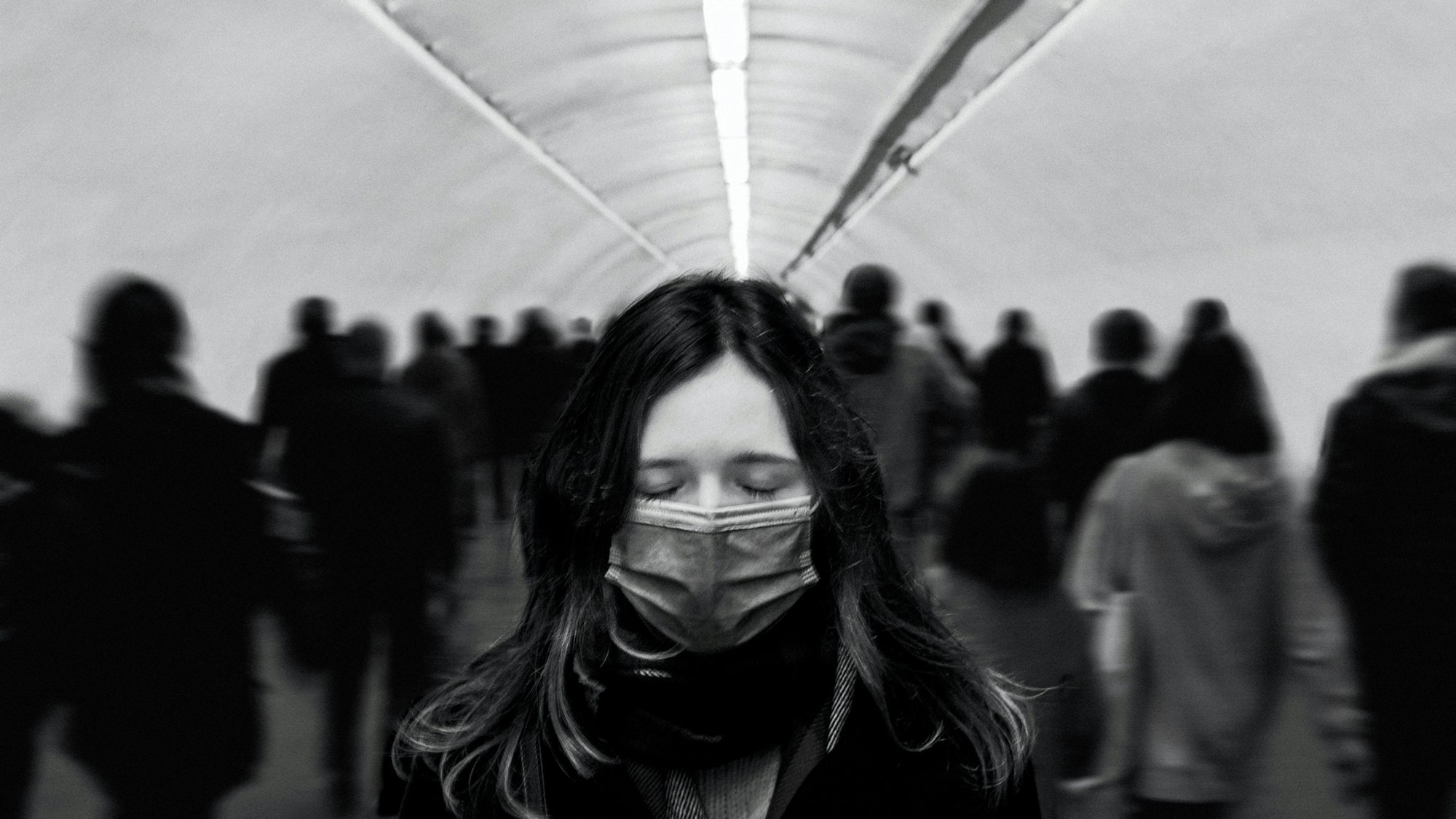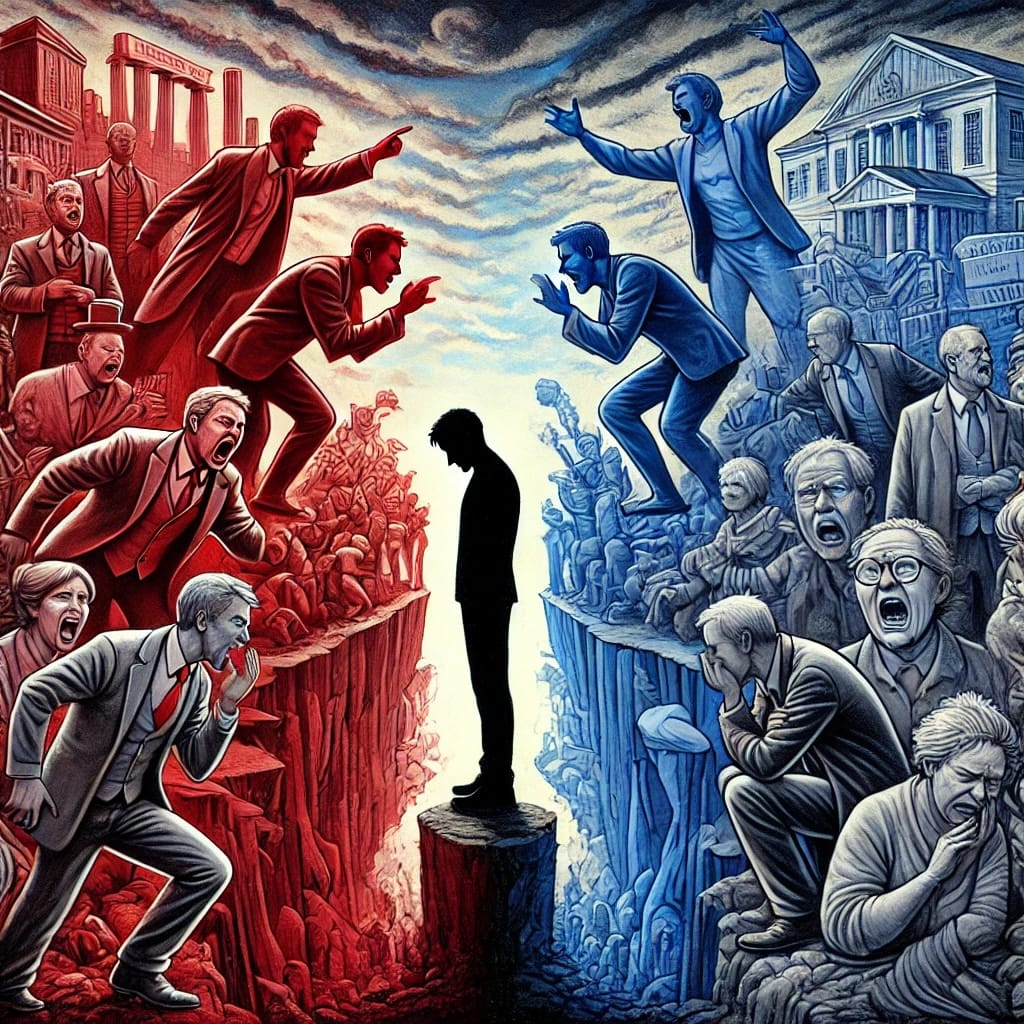How can we rebuild our lives post-pandemic?
Post-pandemic life may be more challenging, unpredictable, divergent, and even fun. So how do we prepare for it?
Unless you are an alien who has been traversing outer space and has only recently landed on Earth, you know that the world has been ravaged by COVID-19 pandemic. And it is far from over.
At the time of writing this article, there have been 263,563,622 confirmed cases of COVID-19, including 5,232,562 deaths, as reported by WHO. COVID-19 epidemic has disrupted almost everything. The pandemic has already immobilized critical mental health services in 93% of countries worldwide. The economic burden of this pandemic has been estimated to cost between $5.8 and $8.8 trillion, which is expected to plunge most countries into recession (World Bank, 2020). Governments around the world have pumped more than $10 trillion into economies to safeguard livelihoods (WHO, 2021). And what's more, the full impact of COVID-19 on health is yet to be determined (Roychowdhury, 2021; 2021).
Now, before you become pessimistic, I would like you to note that just over 100 years ago, nearly a third of world's population was infected by a new strain of influenza; but within three years the threat of this deadly flu had all but passed (ABC, 2020). And this was at a time when modern medicine was in its infancy and scientists were still trying to understand viruses. We have come a long way since then. And so, I'm optimistic that we will rebuild our lives post-pandemic.
In case you are struggling to manage your affairs right now, perhaps integrating mindfulness practice into your lifestyle may assist. Check out these posts where I outline two mindful practices to save your sanity during COVID-19 lockdown and crisis (Roychowdhury, 2021; 2021).
It is clear that COVID-19 pandemic has drastically changed human behaviour and perspective. So how can we re-build our lives in the post-pandemic world? In the following sections, I outline 5 ways you can bring about positive change in your life.
Building Life Post-Pandemic Tip 1
Challenge Status Quo
COVID-19 pandemic has disrupted nearly everything. People and organisations have had to adapt to new ways of livelihoods and strategies. And so, going back to pre-pandemic ways would be a losing tactic. This pandemic also forced a lot of individuals and companies to re-examine their long-held assumptions.
For a long time, it was a case of same-old same-old. We did things because that's how things were done. This kind of circular logic is not only circuitous but also inefficient. Monolithic systems that once claimed to provide stability crumbled under pandemic pressure, unable to provide steadiness and security. The Great Resignation is one of many instances where regular folks realized that life could be imagined in a different way.
Growth and success during and post-pandemic will be driven by innovative, flexible, and compassionate methods. To instigate positive change, you must challenge the status quo and ascertain what works for you (and more importantly, what doesn't). You need to be thoughtful and intentional about how to create a process where your needs and wants can be harmoniously synergized. And, it is about how adaptable and agile you are during that process. Positive change takes time, and so, ensure that you have abundant energy to drive it.
Building Life Post-Pandemic Tip 2
Prioritize Health, especially Mental Health
The COVID-19 pandemic has exposed existing vulnerabilities in our health care systems. And this is especially true for mental health. Throughout 2020 and 2021, it was found that psychological distress intensified during the pandemic (AIHW, 2021). Findings from OECD revealed that COVID‑19 crisis has heightened the risk factors generally associated with poor mental health (e.g., financial insecurity, unemployment, and fear), while protective factors (e.g., social connection, employment, educational engagement, daily routine, and access to physical exercise and health services) fell dramatically (OECD, 2021).
And so, you must invest in your mental health so that you can not only assuage the detrimental effects of COVID-19 crisis, but also create a lifestyle that is conducive for growth and harmony. You could seek professional help, maintain healthy lifestyle, practice mindfulness, and ask for assistance from family and friends. Check out this post if you would like to obtain simple tips on how best to practice mental health hygiene (Roychowdhury, 2012).
Building Life Post-Pandemic Tip 3
Spend more time in Nature
The pandemic has forced a lot of us to stay indoors and confined. A recent study commented on the importance of nature to city living during the COVID-19 pandemic (McCunn, 2020). The study further highlighted that parks, community gardens, and other natural areas are essential to urban dwellers, especially if restrictions to physically distance from other people become longstanding or recurrent.
The research on the benefits of spending time in nature isn't new. Studies have consistently associated living in greener urban areas with reduced probabilities of mental distress, obesity, cardiovascular disease, diabetes, and asthma hospitalisation, among adults, and lowered risks of obesity and myopia in children (White et al., 2019). Moreover, neighbourhood engagement with natural greener space were also found to be associated with enhanced self-reported health, and subjective well-being in adults, and improved birth outcomes and cognitive development in children. Additionally, it has been reported that residential green space in childhood is associated with lower risk of psychiatric disorders from adolescence into adulthood (Engemann et al., 2019).
And therefore, urban planners, government decision-makers, and health practitioners should aim to develop simple and relatively inexpensive strategies to augment the usability of nature in innovative ways.
Given the positive associations between nature and mental health, you should go out more often. A short walk with your partner or friend, a picnic by the beach, a family get-together in your local park, a dance and/or gym session with your mates, a friendly game of soccer in your neighbourhood oval, or a weekend hiking trip – all of these have the potential to bring about positive change in your emotion, mood, and cognition. They may also help you reduce stress and enhance overall well-being. So, pick your favourite activity and get moving!
Building Life Post-Pandemic Tip 4
Support Local
The pandemic has been a global catastrophe. However, it is likely that you have been impacted more by local stories and issues than global trends. The inconvenience of lockdowns and closure of certain local businesses would have affected you more than what has been happening in the other parts of the world. However, as challenging as it is, perhaps dealing with macro-issues, especially on a global stage, may not be feasible for humble individuals like you and I.
And so, we must start local. In the past year, I have made a conscious effort to buy local. From mom-and-pop shops to farmers market, you would be amazed at the diversity that your local town likely boasts of. For instance, in the past year, I have tried local delicacies that until the start of the pandemic were practically invisible to me – from local bread and home-made jams to seasonal produce and delicious smoothies.
Supporting local isn't just good for the economy, it's also good for the environment. And when local communities thrive, it also fosters a sense of belonging and togetherness. This also means that you create a sense of purpose and agency in the communities you live in.
Building Life Post-Pandemic Tip 5
Develop Insight and Perspective
The pandemic forced people to adjust to altered ways of living – something that would have been inconceivable just two years ago. Mandatory lockdowns and confinement meant that people spent more time at home. This afforded many the opportunity to rethink what they value and their motivations for doing so.
In psychotherapeutic terms, it gave people an opportunity to gain valuable insight on what mattered most to them and what did not. Sometimes we need to take a break from our monotonous lives just to figure out what we need and how best to secure them.
Unsurprisingly, almost two years ago, I alluded to accepting "this kind of flexistence" (Roychowdhury, 2020) as the new norm. I now feel that we must utilize this opportunity to develop perspective in life. Who are we? What are we upto? What drives us? What gives us meaning? What makes us happy and content? How are we serving our community?
So, how do you develop insight and perspective? The two things you could perhaps focus on are – observation and understanding. Let me illustrate this with an elementary example: You learn that fire is hot by experiencing it. You may have observed fire burning something and realised it's destructive nature. Or even worse, you may recall being burnt by fire. Either way, you observed that fire could cause damage and you understood this the next time you reached to pick up something hot. The same way, the COVID-19 crisis afforded us the opportunity to pause and observe things around us. We now have the responsibility of understanding these learnings so that we can take meaningful and committed action to improve our lives and that of others.
COVID-19 has fundamentally altered the way we move, live, and think. It has broken our systems, structures, and resilience. It is now time that we collectively learn from this tragic experience and re-build our lives. The ways I have included in this article will provide a humble beginning for people who want to take meaningful and tangible actions to re-build their lives post-pandemic.
References
ABC News. How do pandemics usually end? And how will this one finish? https://www.abc.net.au/news/health/2020-09-08/covid-coronavirus-how-do-pandemics-end-and-how-will-this-one-end/12596954
Australian Institute for Health and Welfare. (2021). Mental health services in Australia. https://www.aihw.gov.au/reports/mental-health-services/mental-health-services-in-australia/report-contents/mental-health-impact-of-covid-19
Engemann, K., Pedersen, C., Arge, L., Tsirogiannis, C., Mortensen, P., & Svenning, J. (2019). Residential green space in childhood is associated with lower risk of psychiatric disorders from adolescence into adulthood. Proceedings of the National Academy of Sciences, 116(11), 5188–5193. https://doi.org/10.1073/pnas.1807504116
McCunn, L. (2020). The importance of nature to city living during the COVID-19 pandemic: Considerations and goals from environmental psychology. Cities & Health, 1–4. https://doi.org/10.1080/23748834.2020.1795385
Organisation for Economic Co-operation and Development. (2021). Tackling the mental health impact of the COVID-19 crisis: An integrated, whole-of-society response. https://www.oecd.org/coronavirus/policy-responses/tackling-the-mental-health-impact-of-the-covid-19-crisis-an-integrated-whole-of-society-response-0ccafa0b/
Roychowdhury, D. (2012). What is mental health and why it matters? https://www.drdevroy.com/mental-health-matters/
Roychowdhury, D. (2020). Resolving COVID-19 lockdowns. https://www.drdevroy.com/covid-lockdowns/
Roychowdhury, D. (2021). Mindfulness practice during COVID-19 crisis: Implications for confinement, physical inactivity, and sedentarism. Asian Journal of Sport and Exercise Psychology, 1(2), 108–115. https://doi.org/10.1016/j.ajsep.2021.09.004
Roychowdhury, D. (2021). Mindfulness practices to save your sanity in lockdown. Psychology Today, https://www.psychologytoday.com/au/blog/the-roychowdhury-code/202110/mindfulness-practices-save-your-sanity-in-lockdown
Roychowdhury, D. (2021). Mindfulness practices to stay healthy during lockdown and crisis. https://www.drdevroy.com/mindfulness-practices-during-crisis/
Roychowdhury, D. (2021). Mindfulness: Spiritual transcendence or neoliberal scam. https://www.drdevroy.com/mindfulness-spirituality-or-scam/
Wikipedia. (2021). Great resignation. https://en.wikipedia.org/wiki/Great_Resignation
World Bank (2020). The global economic outlook during the COVID-19 pandemic: A changed world. https://www.worldbank.org/en/news/feature/2020/06/08/the-global-economic-outlook-during-the-covid-19-pandemic-a-changed-world
World Health Organization (2020). WHO Coronavirus (COVID-19) Dashboard. https://covid19.who.int













Discussion